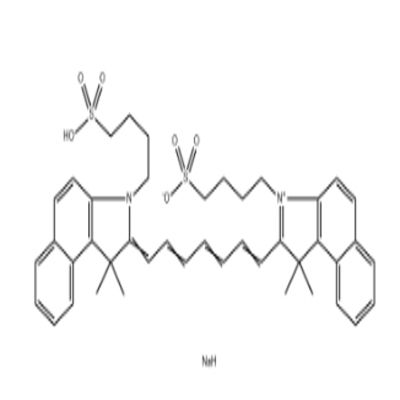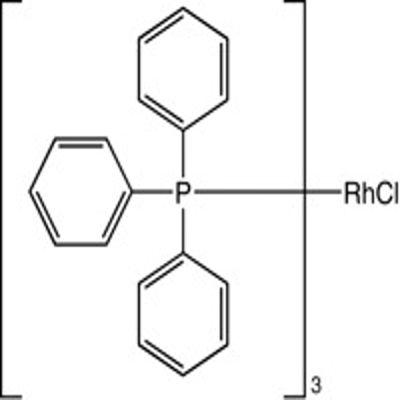-
Categories
-
Pharmaceutical Intermediates
-
Active Pharmaceutical Ingredients
-
Food Additives
- Industrial Coatings
- Agrochemicals
- Dyes and Pigments
- Surfactant
- Flavors and Fragrances
- Chemical Reagents
- Catalyst and Auxiliary
- Natural Products
- Inorganic Chemistry
-
Organic Chemistry
-
Biochemical Engineering
- Analytical Chemistry
- Cosmetic Ingredient
-
Pharmaceutical Intermediates
Promotion
ECHEMI Mall
Wholesale
Weekly Price
Exhibition
News
-
Trade Service
Recently, the Alliance for Regenerative Medicine, ARM, released a report for the first half of 2020 called "Innovations under the New Crown Outbreak".
report notes that the field of regenerative medicine (including gene therapy, gene-engineered cell therapy, cell therapy, and tissue engineering) has demonstrated outstanding resilience in the face of the challenges of the new crown outbreak.
the first half of 2020, $10.7 billion will be completed globally in this area, more than for the whole of 2019.
expects a record amount of funding for the whole of 2019.
, companies dedicated to developing regenerative therapies have broken the 1000 mark for the first time! Today, the M.A. Kant content team will share the highlights of this report with readers.
the reverse trend in the field of
regenerative medicine According to ARM, in the first half of 2020, the number of companies worldwide dedicated to the development of regenerative medicine therapies exceeded the 1000 mark for the first time, of which 415 companies have entered the clinical development phase of their research and development projects.
, 515 companies are working on gene therapy, 632 are developing cell therapy, and 136 are developing tissue engineering/biomass technology (some are also working on a variety of technology areas).
photo source: Source: Reference: Silicon Valley Bank recently released the first half of 2020 investment and financing report has pointed out that investment and financing in the health care sector under the new crown outbreak, showing a "reverse flow up" trend.
in the field of regenerative medicine, which mainly develops gene and cell therapy, the first half of 2020 was even brighter.
ARM report shows that the sector's first-half financing amounted to $10.7 billion, up 120% from the same period in 2019! Whether it's early venture capital or a late IPO, Regenerative Medicine is performing at a record level.
the first half of this year, five gene and cell therapy companies were successfully IPOd, including Nanjing Legend, Passage Bio, Akouos, Generation Bio and Beam Therapeutics.
development pipeline to treat hundreds of serious diseases as of June 30, 2020, 1,078 clinical trials are underway worldwide to test the effectiveness of different regenerative medicine therapies for treating hundreds of serious diseases.
, 394 were phase 1 clinical trials, 587 were Phase 2 clinical trials and 97 were Phase 3 clinical trials.
cell-based cancer immunotherapy (including CAR-T, TCR cell therapy, tumor immersion T-cell therapy, etc.) has the highest proportion and 471 clinical trials are under way.
: References: In the area of adaptation, 665 clinical trials focused on oncology, accounting for 62% of the total number of clinical trials.
other clinical trials include musculoskeletal disease (58), endocrine, metabolic and genetic diseases (55), central nervous system diseases (52), and cardiovascular disease (45).
the first half of this year, a number of cell and gene therapy in the late stages of development reached important milestones.
For example, Kite Pharma's CAR-T therapy KTE-X19 and BMS's CAR-T therapy liso-cel are both eligible for priority review by the FDA and are expected to be approved by the FDA this summer (KTEX-X19 was approved by the FDA on July 24).
therapy Ryoncil, developed by Mesoblast, has also been granted priority review by the FDA, and the adaptive disorder is a transplant-resistant host disease.
, regenerative medicine therapy development companies are also experimenting with cell therapy to treat COVID-19 patients as the new crown disease sweeps the globe.
OFM statistics show that there are currently 11 clinical trials using regenerative medical therapy to treat COVID-19, and another 25 research and development projects are in the preclinical development stage.
many companies, including Mesoblast, Athersys, Pluristem Therapeutics, and others, are using mesocharge stem cells (MSCs) and other substitate cells to treat acute respiratory distress syndrome (ARDS) caused by COVID-19.
cell therapy of the same isogen can be pre-frozen and defrosted and infused to patients when needed.
regulators continue to help develop innovative therapies, while the new crown outbreak is a source of heavy pressure on regulators around the world, both the FDA and the EUROPEAN EMA need to split up significant time and manpower to process COVID-19-related regulatory applications.
, however, the FDA and EMA have not slowed down in supporting regenerative therapies.
according to ARM, in the first half of 2020, the FDA awarded a total of seven advanced therapies for regenerative medicine (RMAT) accreditation, and the EMA awarded PRIME accreditation for a gene therapy and a cell therapy.
these qualifications, which are intended to accelerate the development and review process of research projects, reflect the efforts of the FDA and EMA to promote the development of regenerative therapies.
, CRISPR Therapeutics and Vertex obtained RMAT in May this year for the gene-editing therapy CTX001 for sickle cells and beta thalassemia.
Other treatments that have received RMAT include Novarro's CAR-T therapy Kymriah, which treats follicular lymphoma, Immunicum's cell therapy for renal cell carcinoma, and TissueTech's tissue engineering therapy to repair spina bifida.
EMA has qualified prime medicines for Theria GTx and Jansen, a gene therapy for X-chain retinal pigmentation, and Viral-M, a cell therapy developed by AlloVir to treat severe viral infections in immunodeficiency patients.
concluded ARM that there is no denying that the new crown outbreak will affect the progress of a number of clinical trials, including those on regenerative therapies.
pressure on regulators from the outbreak could delay the review and launch of regenerative therapies in the future.
these challenges, ARM expects several regenerative medicine treatments to be submitted for regulatory applications and approval in the second half of this year.
promise to change patients' lives in the long term.
: . . . . . . . . . . . . . . . . . . . . . . . . . . Retrieved August 9, 2020, from ▽ attention to the Public No.







